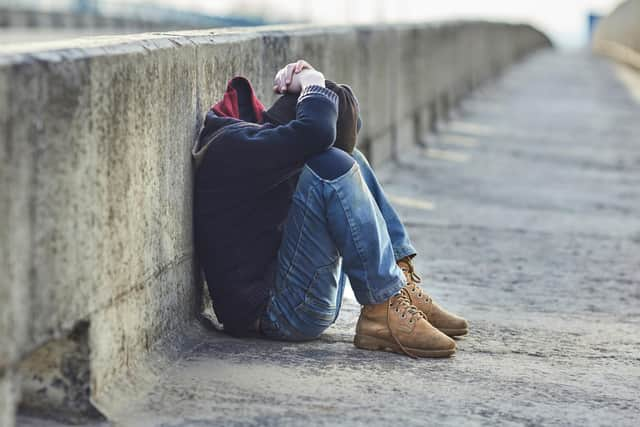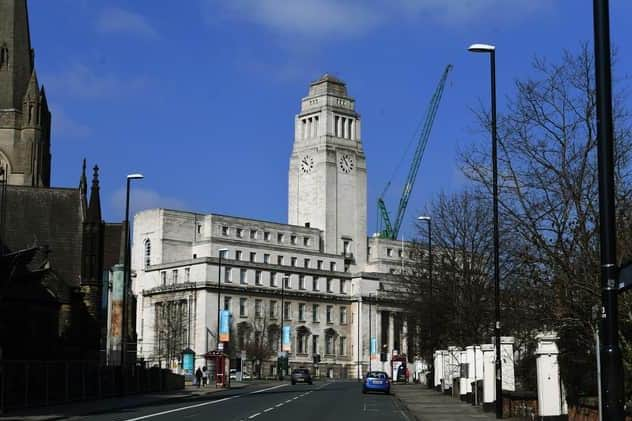Cost of living crisis: Report finds Leeds residents selling wedding rings to pay bills and looking through bins for food because of benefits issues
and live on Freeview channel 276
The University of Leeds report found that people in some of the city’s most deprived areas are going cold and hungry as the cost of living crisis deepens.
People in Beeston, Armley, Gipton and Harehills are among some of those worst affected with people regularly skipping meals, not using gas or electric and pawning their personal possessions.
Advertisement
Hide AdAdvertisement
Hide AdIn response to the report, a spokesperson for the Department For Work and Pensions (DWP) said it “recognise(s) people are struggling with rising prices” but pointed to measures it is taking to help, such as providing households with £400 towards energy costs.


Among the testimonies given in the report was one woman who said: “I was supposed to be keeping it for my daughter, but I actually sold my wedding ring and engagement ring just so I can top up the electric.”
One woman said that she had sold her phone so she could afford to put the heating on and another said she had “been in bins to try and feed”.
One man said that the situation was leaving him “depressed to death”, while another said: “We wanted a Pot Noodle or something. To boil the kettle, I pulled the floorboards up in the house and the skirting boards off the wall as well and burnt them in an open fire to boil the kettle.”
Advertisement
Hide AdAdvertisement
Hide AdThe lead author of the report, Dr Daniel Edmiston, of Leeds’ School of Sociology and Social Policy, explained that the economic gap between Leeds and the rest of the UK had widened in recent years anyway, pushing some into “severe financial crisis”.


He said: “Rising inflation is increasing the risk and severity of poverty.
"Rather than acting as a safety net at this difficult time, the social security system is functioning as a debt collector for many, with 45% of Universal Credit claimants losing up to 25% of their entitlement due to benefit deductions, recovery of advance payments or arrears.”
According to the report, more than £18 million per year is being “withheld” in Universal Credit payments alone from the lowest-income households across Leeds.
Advertisement
Hide AdAdvertisement
Hide AdAs a result, many of those claiming benefits are “trapped in a poverty-debt trap” and are increasingly turning towards short-term, high interest loan providers and loan sharks to buy essentials such as food, gas and electricity.
“Meanwhile, demand for local support services and charitable food aid is soaring,” said Dr Edmiston. “To minimise energy use, some people are only using a microwave or kettle to prepare meals with knock-on effects on their physical and mental health.”
He added: “Locally, invaluable work is being undertaken by Leeds City Council and third sector organisations to try and support those worst affected by the cost-of-living crisis.
"Whilst many organisations are providing a crucial lifeline, their capacity is constrained given the current funding climate.”
Advertisement
Hide AdAdvertisement
Hide AdSimilar experiences are likely to be replicated across the country as a result of the national cost of living crisis, said Dr Edmiston.
As part of his research, which was supported by the British Academy and Wolfson Foundation, Dr Edmiston worked with a wide range of agencies including Leeds City Council, GIPSIL, Hamara, Touchstone, Money Buddies, BARCA, Better Leeds Communities and Citizens Advice Leeds.
The report recommends national changes including increasing benefits in line with inflation, introducing a minimum income guarantee and abolishing the five-week wait for Universal Credit.
Locally, improvements could be made including extending and protecting funding focused on breaking the poverty-debt trap, and reviewing services to avoid those on the lowest income “slipping through the cracks”.
Advertisement
Hide AdAdvertisement
Hide AdIn response to the findings of the research, Tracy Brabin, Mayor of West Yorkshire, said: “I pay tribute to the fantastic work underway across West Yorkshire to provide food banks, warm spaces and debt advice for the most vulnerable.
“But the findings in this report are absolutely appalling – it is a stain on our national conscience that people are cold and hungry in the sixth richest country in the world.
“For months we’ve been calling for an increase to Universal Credit, but the government is idly standing by while people suffer.
“Enough is enough. The Chancellor must act in this week’s Autumn Statement to provide a plan to save our economy, protect our households and rescue our public services.”
Advertisement
Hide AdAdvertisement
Hide AdChief Executive of Citizens Advice Leeds, Dianne Lyons said: “This research from Leeds University underlines what we’ve been seeing at Citizens Advice Leeds for many months now.
“People who were already struggling are now in absolute crisis, unable to pay for the necessities of day to day living.
“Leeds City Council and many local charities are doing extraordinary work to help people through the cost of living crisis, but the real solutions depend on national policy decisions.”
In response to the report, a DWP spokesperson said: “We have reduced the maximum amount that can be deducted from a Universal Credit award twice in recent years. We’ve also doubled the time period over which they can be repaid and claimants can contact DWP to discuss deductions if they are experiencing financial hardship.
Advertisement
Hide AdAdvertisement
Hide Ad“We’ve also frozen energy deductions on Universal Credit, meaning any new request from energy suppliers for bills to be paid directly from benefits, or for an existing payment to rise, is denied unless the claimant also requests it.
“But we recognise people are struggling with rising prices which why we are protecting millions of the most vulnerable families with at least £1,200 of support, including providing all households with £400 towards energy costs.”